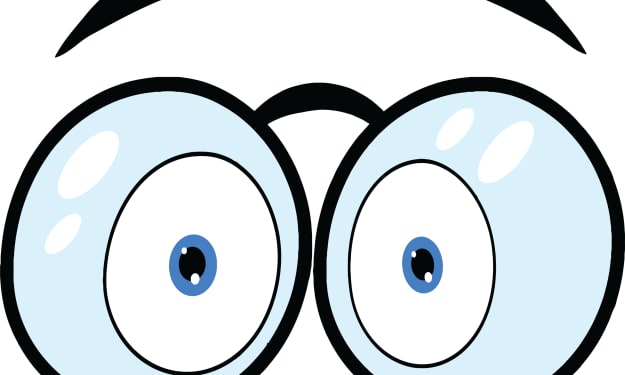8 Ways Of Dexmethylphenidate Side Effects
In This Article, We Will Know About 8 Ways Of Dexmethylphenidate Side Effects

Dexmethylphenidate side effects can lead to dangerous problems such as seizures, psychotic symptoms, and sudden death. Dexmethylphenidate side effects can occur from just a few weeks to months after starting treatment with dexmethylphenidate.
Dexmethylphenidate is a highly potent, fast-acting, short-acting pharmacological agent that is used in the treatment of ADHD. The typical dose is 0.5 mg to 1 mg/kg per day, depending on patient weight. Dexmethylphenidate is generally well tolerated. Its side effects are most often mild and include headaches, insomnia, nausea, abdominal pain, dizziness, and fatigue.
Dexmethylphenidate side effects typically occur during the first few weeks of treatment and tend to lessen over time as the body becomes used to the medication. Common side effects include drowsiness, dizziness, headache, stomach upset, insomnia, and fatigue. Serious side effects are less common but can include: seizures, psychotic symptoms, and sudden death. Seek immediate medical attention if you experience: unusual changes in behavior, agitation, hallucinations, confusion, fever, muscle spasms, or weakness.
What is dexmethylphenidate
dexmethylphenidate (dex) is a central nervous system stimulant of the amphetamine class that has been used in the treatment of attention deficit hyperactivity disorder (ADHD), narcolepsy, depression, and various psychiatric disorders. Dexmethylphenidate is a central nervous system stimulant that belongs to the group of sympathomimetic amines. It is the dextrorotatory enantiomer of amphetamine.
Dexmethylphenidate (DMPH) is a powerful stimulant with a short half-life. dexmethylphenidate (Ritalin), dexmethylphenidate (Mixed amphetamine salts), and dexmethylphenidate (Controlled-release) are the brand names of methylphenidate, a schedule II controlled substance. Dexmethylphenidate is used to treat symptoms of attention deficit hyperactivity disorder, but it is also used to treat narcolepsy and to enhance wakefulness in people suffering from chronic or extreme fatigue.
What are the side effects associated with using dexmethylphenidate?
Dexmethylphenidate is a medication used to treat attention deficit hyperactivity disorder (ADHD) in adults. The most common side effects of dexmethylphenidate include drowsiness, headache, and dizziness. Other possible side effects may include heart problems, anxiety, and irritability. Dexmethylphenidate is in a group of medications called central nervous system stimulants.
Dexmethylphenidate is a stimulant medication used to treat attention deficit hyperactivity disorder (ADHD). Stimulant medications are known to have side effects, some of which may be serious. Dexmethylphenidate may cause the following side effects:
1. – Indigestion
In the past few years, stimulants have become popular as an “off-label” performance enhancer for students. In fact, this is the most common use of the drug. Recently, the Food and Drug Administration (FDA) updated the information about the use of the drug in, students. The new regulations state that the drug is only safe and effective if it is used for the treatment of attention deficit hyperactivity disorder.
Many individuals who have been taking dexmethylphenidate (or Ritalin) for years have found that it causes indigestion. According to the American Academy of Pediatrics, the use of Ritalin for children and adolescents has been shown to increase the incidence of weight loss, abdominal pain, vomiting, and loss of appetite (American Academy of Pediatrics, 2013). In addition, it has been reported that many children who take Ritalin have been found to have tics.
Some people experience a “rush of energy” that makes them feel jittery and nervous. In addition, appetite stimulation causes people to eat more than they should. When used appropriately, it can also be helpful for people who need to remain focused and may have trouble staying awake while studying or working.
2. – Lack of appetite
Doing research for this assignment involved reading several scholarly articles and textbooks, as well as talking to experts in the field. One of the most interesting topics I had to research was the drug Dexmethylphenidate, also known as Ritalin. Ritalin is a psychostimulant that is used to treat symptoms of attention-deficit hyperactivity disorder (ADHD). However, many students have claimed that Ritalin causes them to lack appetite.
Phentermine, sold under the trade name Dexedrine, is a weight loss medication that works by helping the brain to send signals to the body to increase the number of calories that are consumed. The result is that the user will feel fuller faster and often experience an increased desire to eat, which is why it is often used in combination with other weight loss medications.
However, some users will notice that they have little or no appetite once they have started to use Dexedrine, which can make it difficult to follow a diet or take part in other lifestyle changes. This is not a side effect that is specific to Dexedrine and can occur with any weight loss medication, but it is something that users should be aware of so that.
Read More- Dexmethylphenidate Side Effects






Comments
There are no comments for this story
Be the first to respond and start the conversation.